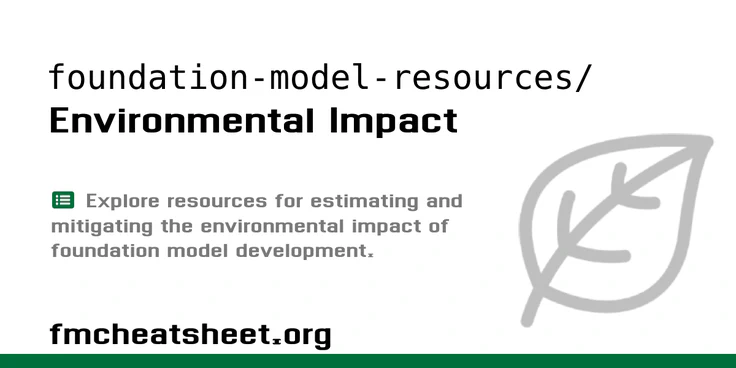Foundation model development is often resource intensive. The following tools help one to measure energy consumption and estimate the carbon intensity of the energy source used. Decisions made during or prior to model training can have a significant effect on the upstream and downstream environmental impact of a given model.



